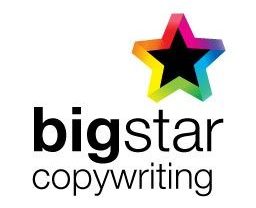Content – a single word that has changed marketing strategies and consumer expectations on brand relationships for good.
Purposeful content has become synonymous with the most effective marketing tactics. There has been a seismic shift away from sales messages to put customer information needs first. Businesses from all sectors are now required to create an unparalleled level of high quality, reader-friendly content. Brands that struggle to produce this content in-house are turning to the specialist skills of agencies to outsource copywriting. Here are some of the reasons why:
Most consumers now expect brands to provide meaningful content. Havas’ 2019 Meaningful Brands Study discovered that 90% of consumers expect brands to produce content but half of the content they deliver is considered meaningless. Meanwhile, research by the Content Marketing Institute discovered that 70% of consumers prefer to learn about a brand’s products and services through an article rather than advertising. The pressure is on to produce authentic content that resonates with these audiences.
Businesses that post 16+ posts per month get almost 3.5X more traffic than those that post 4 times or less, according to HubSpot. Research by Tech Client adds further depth to this with this second statistic. Companies that blog have 434% more indexed pages than companies that don’t.
Both B2C and B2B businesses plan to increase spend on content creation services. CMI discovered that 57% of B2C marketers planned to increase their content marketing budget in 2019. CMI also found a similar trend among 55% of B2B brands who also plan to increase spend.

Firstly, some myths dispelled
We hear a number of objections to businesses outsourcing their content, particularly when it’s high frequency like news or blogs. Here are some of most frequent:
“I don’t have the time to manage the process/brief in the writer/source the material/edit the content”
There’s a quick answer to this: you don’t have to. Here at Big Star we often just receive a title and a keyword – and that’s it. The content writer’s job is to construct interesting, engaging content around that subject area. Most people don’t have time to go and source and write daily news stories in their industry sector. That’s why they come to a copywriting agency and we make sure that the process is really easy for them.
“If I turn over my content to a contractor, it won’t represent my brand or my style”
A good copywriting agency can write on your behalf without your customers noticing. Our team of writers can research and write on virtually any topic. We can write in your style. We can emulate your tone of voice. We can work to your style guidelines – we can even write those guidelines for you so that other writers can use them too (we can train those other writers too, but that’s another story).
We ghost write blogs for a number of corporate clients. Their customers are none the wiser and are happy to be able to get regular content rather than having to wait until that senior person in the organisation (you) gets 10 minutes to put pen to paper.
“If I’m not in control, it won’t be good enough or they will say something that could be detrimental to my company”
A reputable agency will have controls built into the process and you can be involved as much or as little as you like. Here are some examples of how we work at Big Star Copywriting:
- We interview you, your customers, your colleagues; we work with original material that you supply. This works very well for compelling press releases.
- You supply an outline of the article you want, with links to the source material you’d like to use. A good process for highly technical articles or news stories.
- You supply the title and the keyword. An efficient way for you to direct the content around your SEO campaign.
- We supply the titles for your approval before we start writing. We often start this way to build trust with a client.
- We source the titles and create the content around the title before submitting for your approval. Long-term clients trust us to work autonomously.
- We create and publish the content on your behalf. This works particularly well for blogs and news feeds, especially if we are working on the blog promotion or social media marketing where we require a high degree of autonomy.
When it comes to blogs or articles you don’t need to spend any time researching, managing, editing or even publishing. Once the process is up and running it can all be done for you.
The process is roughly the same for any news, article or blog content we produce. We create a couple of samples based on a scant brief. We take client feedback and then apply that to future posts. We then course correct according to your changing needs or response to content.
We work with a number of businesses where we produce content totally autonomously. The only contact we receive from them is the payment of our invoice. We create the titles, we research the material, we create the content. For some people we even publish the content and then promote that content through social media.
The Holy Grail for most clients is great content without the need to be involved. And that’s exactly what the right copywriting agency can deliver.
Why more brands are deciding to outsource copywriting
You could write this content in-house. But, this can create some problems and difficulties. These all stem from two of your biggest challenges – time and resource:
Lack of time – good content takes time. Even if you have a skilled marketing team, they may not have time to handle everything themselves. This can lead to other important marketing tasks missing deadlines or going undone.
Lack of talent / resources – if your business has not got deep pockets to invest in an in-house team, or your marketing team is small, you may not have the resources and skills to build your strategy and produce high-quality, meaningful content.
Increased / overwhelming demands on in-house marketing staff – putting your increasing content demands on your existing staff can lead to diminishing quality and morale, and potentially burn-out.
Lack of scalability – you can’t simply hire staff when content requirements are high, and then let them go when you need to ease back on content production.
As you will have of course guessed from the title, there is a way to meet your content needs while avoiding the problems above.
6 reasons to outsource your copywriting
The need to outsource your copywriting and content marketing needs is becoming far more common. If you choose to then you’re in good company.
In fact, the CMI research found that 53% of brands outsource at least one content marketing activity. Content creation is the most outsourced activity at 42%.
In contrast to the problems above that might otherwise arise, outsourcing your content needs to a dedicated copywriting agency has some significant benefits, including:
- Immediacy – instant access to highly experienced copywriters who can create compelling and useful content.
- Flexibility – you can use a copywriting agency to handle all of your content demands, or you can hire them to pick up the slack during busy periods or times of high demand.
- Expertise – you can make use of a reliable pool of expert copywriters to complete a single project, or you can use them on an ongoing basis, such as regular blog posts.
- Thinking – if information comes from the same internal source, time after time, then you could be caught in a creative echo chamber.
- Scalability – if your needs grow month on month, you need only communicate these increased needs to the agency. If your needs diminish again, this too can be easily accounted for. Though you may negotiate a minimum contract period with an agency, it is also easy to discontinue or pause your use of these services as required.
- Optimisation – experienced copywriters provide many services, including writing copy that is optimised for SEO. They will understand how to use the right keywords to make it easier for your content to be found when people are searching.
Now we’ve covered the reasons why it may be a good idea to outsource your copywriting, let’s look at how you can do it while ensuring the integrity of your brand and the quality of your content output.
How do I choose a copywriting agency?

Look for an agency that demonstrates that it has specific experience in writing the type of content you need. You may also want to look for an agency with copywriters who are experienced in your specific field. In general though a professional copywriter should able to turn their hand to any writing style to share your brand story, to engage and build more meaningful connections with your target audience.
Linkedin can also be a useful tool – use the search function to identify connections you could be introduced to. You can also simply search for the appropriate terms (copywriting agency, travel copywriter etc as needed).
By now you should have narrowed your potential selection down to a handful of agencies. In making your final selection you should consider some key things:
Cost – clearly you want to save money wherever possible. But, you should also weigh this up against the other factors below.
Geography – choosing an agency in your country / the target country for your website will eliminate the possible impact of cultural differences, and will allow the writers to understand your customers better.
One interesting trend is that European and other non-English native speaking countries are choosing to recruit UK copywriting agencies to write all their web content in UK English before translation into other markets.
Capacity – you need to determine whether the prospective agency has the resources available to complete the copy you need in the timescale you require.
Quality / experience – take a look at some content examples to get an idea of the level of quality they are capable of. Then take a look what clients say and any case studies. Who are their satisfied clients? Are they of a similar scale to your brand? Are they from within the same industry?
Editorial control – some agencies may act like an introduction service between you and the copywriter. They will find the right writer and then you manage the relationship. That can work well when you’re looking for someone full-time, to work in-house with you or for a specialist writer.
Other agencies provide a more hands-on service, managing their own in-house or freelance writing teams. You may have little or no contact with the actual writer or writers working on your project with all the briefing, management, copy editing and amends handled by an editor or account manager.
This can be a huge time-saving, especially when you’re working on a large volume project, and provided the agency can keep a consistent tone of voice it can be a very efficient and cost-effective way of generating the content you need.
What do I need to know about contracts?
Once you’ve chosen a copywriting agency you need to agree on terms of service. The details of this will vary from agency to agency, but you will agree on either a fixed cost for the project or a day / hour rate for the work completed. The former has the advantage of making it easier for you to control and predict your costs.
You will also agree on when payment will take place. This will usually be on completion of the project, though for larger projects a smaller percentage may be requested as a deposit at a more early stage, with subsequent staggered payments. Keep in mind that most large copywriting agencies charge VAT, so check whether or not this is included in your quote.
Once the work is completed, the agency will send you an invoice for the work, which you should instruct your finance department to issue remittance for in the agreed timeframe.
Preserving your brand voice

One of the biggest concerns for established brands is that if they outsource copywriting, they may somehow dilute or distort the image of their brand.
Provided you issue the agency with specific guidelines on the brand image you want to convey, the style and tone of voice that the writing should adopt, they should be able to replicate this precisely.
The best way to do this is to create a tone of voice / style guide if you don’t have one already or ask the agency to work on this with you.
Your tone of voice document should be relatively short – perhaps two sides of A4 – and easy to follow. It should specify details such as:
- Who your core audience is
- What qualities and messages you wish the copy to convey about your brand (e.g. experience, professionalism, attention to detail)
- What kind of language should be used (e.g., simple / complex / technical / trendy)
- Details of specific words that should or should not be used throughout the copy
- Formatting guidelines, such as paragraph / sentence length, hyphenation, etc
Any skilled and experienced copywriter can adapt their writing to match your required style, in the same way that a decorator or architect can match your wishes for your home.
Communicating effectively with your copywriting agency
The best way to ensure that the finished copy is exactly what you want is to clearly communicate what you to achieve. You will need to provide them with a brief of how many pages or blogs you require, with approximate lengths and topics.
In the case of web content, this will probably be quite specific, such as a home page introducing the website, or an ‘about us’ profiling your brand story and values.
For product description writing, you can send across details and specifications for your products, and work with the agency to determine what format the descriptions should take and what information they should include.
You may wish to invite the agency to attend product presentations in person, post physical products to them or invite them to discuss the product story directly with your product managers. In the case of travel clients, you can even send writers to review accommodation, facilities, destinations and more. There’s a lot of evidence to suggest that this level of research and first-hand experience is what consumers are looking for in the content they search out.
“At Big Star, we find that the more hands-on we can be with your product, the more authentic and engaging the content”.
In the case of regular blogs, you may wish to give the agency some broad details about the topics you want to cover, and then leave them to research these and come up with some prospective titles. This approach can save you considerable time, and leverage the research experience of the agency’s copywriters to your advantage.
At the beginning of the relationship, it’s a good idea to ask the agency to produce a sample piece of content before commencing with the larger brief. This allows you to check whether they’re on the right track, and to provide feedback which will help them to more closely match your expectations and requirements.
How do I protect confidentiality?

In briefing your copywriting agency, you may have to divulge privileged information which you do not wish to fall into the hands of your competitors, or be shared publicly.
In addition to this, you probably don’t want your competitors to know how much you are paying for your copywriting, or for it to be widely known that your content was created by an external copywriter.
Copywriting agencies understand this need for confidentiality, and all respectable agencies will happily sign a non-disclosure agreement (NDA) which keeps any details of projects worked on confidential. Employees and freelancers of these agencies are also generally required to sign NDAs before commencing work.
How does copyright work?
While the ownership of copyright on the content you are paying for shouldn’t ever really be an issue (i.e it’s yours in perpetuity to do with as you wish) it’s always a good idea to clarify this in writing. We’ve written more on online copyright law here.
How do I make sure content is delivered on time and to brief?

When briefing an agency, you can specify a content deadline. This might be an urgent request for content by the end of the week, or it could be a date further in the future to tie in with a wider project or publication cycle.
All professional copywriting agencies can meet tight deadlines as required, with the obvious allowances for sickness and other unforeseen circumstances.
If the content isn’t quite right when you first receive it – maybe the tone needs tweaking, or you feel there’s an aspect of the topic missing – you can request that the agency makes changes, and this will usually be considered within the scope of the original brief.
Most copywriting agencies will agree to some degree of amendments as part of their costs. However, don’t expect this to be unlimited.
“We define “reasonable amends” as anything up to the second draft that allows us to meet the content brief. If we’re making changes to the content not defined by the original brief, then we would charge for those changes”.
In practice, that works something like this.
A client briefs us on an article about the 10 Best Castles In France but provides no other information. It turns out that one of the castles we write about is not actually in France but just over the Belgian border. We change the article immediately, no questions asked.
If, however, the client comes back to us and says, “hang on, the castles you’ve chosen are not the ones I wanted” (despite having not told us which castles to write about) “please can you rewrite the article to include these ten different castles.” At that point, we would have to charge for the article.
That said, the vast majority of our clients understand what reasonable demands are, and consequently we’re pretty flexible in what we’ll do to make sure the job is delivered correctly.
Discontinuing your copywriting arrangement
Most copywriting is done by the project or brief, so you are under no obligation to continue outsourcing your copywriting work to the agency beyond this. This provides you with flexibility, which can be particularly important during times of financial and market-based uncertainty. It also means that if you’re not completely satisfied with the work you are free to look elsewhere in future.
In the case of blog projects, whereby content is to be produced each month, there may be minimum durations of around three or six months. But these will be discussed and agreed upon in advance between you and the agency.
To sum up
The art of great copywriting has changed. Quality content matters more than ever. It matters to consumers who expect businesses to produce a regular stream of meaningful content. It matters to search engines that look for the right SEO signals to work out if the copy on the page answers search queries. Not all businesses have the time, resource or skills to produce this copy in-house. If you are building your content strategy and thinking about outsourcing your copywriting or you would like further advice we’re here to help.
Editor’s Note: This post was originally published in May 2016 but has since been completely updated so it stays relevant, accurate and valuable to our readers.
